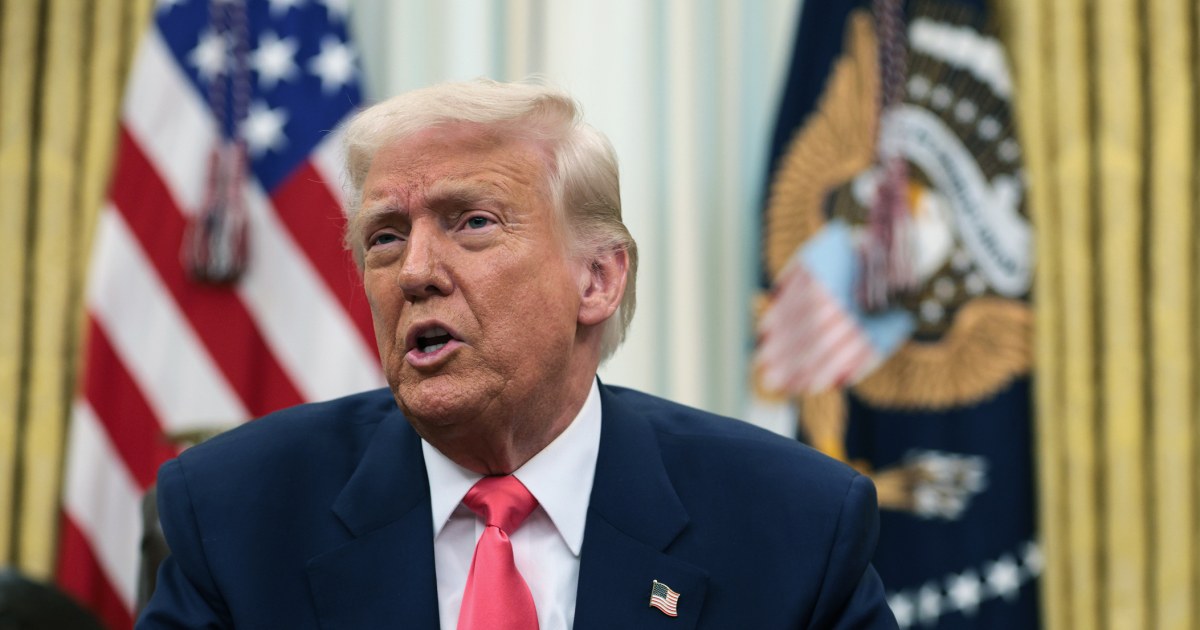Venezuelan Gangs Face Trump's Alien Enemies Act: A Deeper Dive into Legal Ramifications
The Trump administration's controversial Alien Enemies Act is once again under scrutiny, this time focusing on its potential application to Venezuelan gangs operating within the United States. This complex legal issue raises questions about national security, immigration law, and the delicate balance between protecting citizens and upholding due process. This article will delve into the specifics of the act, its potential application in this context, and the broader implications for both Venezuelan immigrants and US law enforcement.
Understanding the Alien Enemies Act
The Alien Enemies Act, enacted in 1798, grants the President broad powers during times of war to apprehend and detain individuals deemed "enemy aliens." While initially intended to address potential threats during wartime, its applicability in the context of modern-day transnational crime syndicates is significantly more nuanced. The key question revolves around the definition of "enemy alien" and whether Venezuelan gang members, even those lacking formal ties to the Venezuelan government, can be classified as such.
Key Considerations in Application:
- Definition of "Enemy Alien": The act doesn't explicitly define "enemy alien," leading to considerable legal interpretation. Does it encompass individuals actively engaged in criminal activities that threaten national security, even without direct allegiance to a foreign power?
- Due Process Concerns: Any application of the Alien Enemies Act must adhere to due process guarantees under the Fifth and Fourteenth Amendments. The potential for arbitrary detention necessitates rigorous legal safeguards.
- National Security Threat Assessment: The government must demonstrate a credible national security threat posed by the targeted individuals. Mere criminal activity is insufficient; a direct link to actions endangering US national security is crucial.
- International Relations: The use of the Alien Enemies Act against Venezuelan citizens could strain US relations with Venezuela, especially in a context where diplomatic ties are already complex.
Venezuelan Gangs and Transnational Crime
The rise of transnational criminal organizations, including those with origins in Venezuela, presents a significant challenge to US law enforcement. These gangs are involved in various illicit activities, including drug trafficking, human smuggling, and violent crime, often impacting US communities directly.
The Link to National Security:
While criminal activity alone doesn't automatically qualify individuals as "enemy aliens," the potential for these gangs to collaborate with foreign actors, engage in terrorism-financing, or disrupt national infrastructure could strengthen a national security argument for applying the act. However, this link must be clearly established.
Legal Challenges and Future Implications
The application of the Alien Enemies Act to Venezuelan gangs would likely face significant legal challenges. Civil rights organizations and legal experts would undoubtedly scrutinize any such application, arguing for the protection of due process and against potential racial or national origin profiling.
Potential Outcomes:
- Legal Battles: Extensive litigation is highly probable, with court decisions shaping future interpretations of the act.
- Policy Revisions: The current ambiguities in the act might necessitate legislative reforms to clarify its application in the context of modern threats.
- Enhanced Law Enforcement Strategies: The debate could lead to a reassessment of law enforcement strategies concerning transnational crime, focusing on collaboration with international partners and evidence-based approaches.
Conclusion: Navigating a Complex Legal Landscape
The potential application of the Alien Enemies Act to Venezuelan gangs presents a complex legal and political challenge. Balancing national security concerns with the fundamental rights of individuals requires a cautious and evidence-based approach. Further legal analysis and transparent government action are crucial to ensure both the safety of US citizens and the upholding of constitutional principles. The ongoing debate highlights the need for ongoing discussion about the modernization of outdated laws and the evolving nature of national security threats.
Disclaimer: This article provides information for educational purposes only and does not constitute legal advice. For specific legal guidance, consult with a qualified legal professional.
